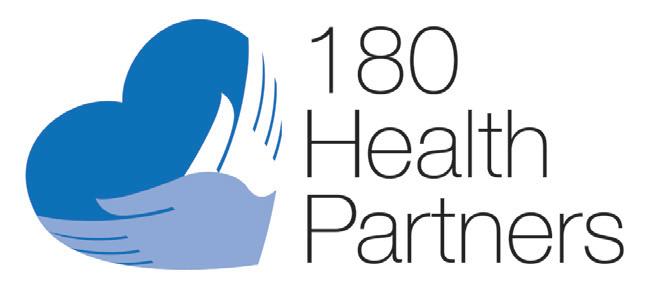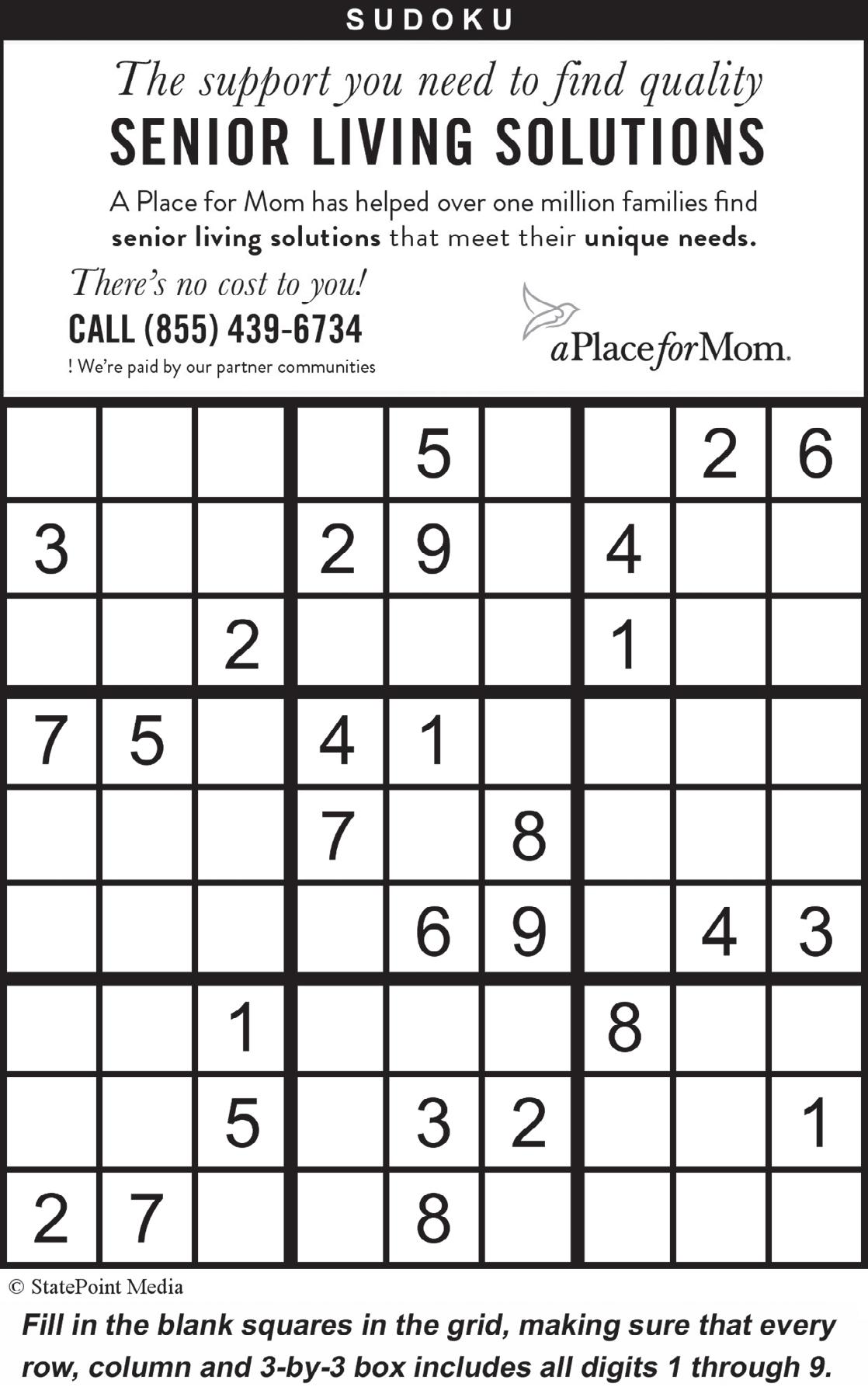











6
History Corner
All aboard the steamboat history of Nashville, which goes far beyond the General Jackson.














All aboard the steamboat history of Nashville, which goes far beyond the General Jackson.

Nashvillians gathered to remember the 50 people who were killed in a New Zealand terrorist attack.
Megan Seling recaps the new Hulu series Shrill and how it feels to see someone like her portrayed in media.

David
Contributor Board
Cathy Jennings, Chair Tom Wills, Bruce Doeg, Demetria Kalodimos, Ann Bourland
Linda Bailey
• Amanda Haggard • Tom Wills
• Norma B. • Jen A. • Vicky B. • Megan Seling • Joe Nolan • Ridley Wills II • Katy
Johnston • Hannah Westwater • Mary B.
• Alvine • Candy L. • Jessie F. • Julie B. • John H. • David “Clinecasso” • Harold B. • Michael “Smiley” G. • June P. • Mr. Mysterio


Cathy Jennings • Tom Wills • Joe First
• Andy Shapiro • Michael Reilly • Ann Bourland • Patti George • Linda Miller •
Deborah Narrigan • John Jennings • Barbara Womack • Colleen Kelly • Janet Kerwood • Logan Ebel • Christing Doeg • Laura Birdsall
• Nancy Kirkland • Mary Smith • Andrew Smith • Ellen Fletcher • Anna Katherine Hollingsworth • Michael Chavarria
Will Connelly, Tasha F. Lemley, Steven Samra, and Tom WIlls Contributor Co-Founders
Editorials and features in The Contributor are the perspectives of the authors.

Submissions of news, opinion, fiction, art and poetry are welcomed. The Contributor reserves the right to edit any submissions. The Contributor cannot and will not endorse any political candidate.

Submissions may be emailed to: editorial@thecontributor.org
Requests to volunteer, donate, or purchase subscriptions can be emailed to: info@thecontributor.org Please email advertising requests to: advertising@thecontributor.org





Mailng Address
The Contributor P.O. Box 332023, Nashville, TN 37203
Editor’s Office: 615.499.6826 Vendor Office: 615.829.6829

Proud Member of:



Printed at:

Follow The Contributor:
Copyright © 2018 The Contributor, Inc. All rights reserved.

 BY TOM WILLS, CO-FOUNDER
BY TOM WILLS, CO-FOUNDER
The paper you just paid for was bought by someone else first, otherwise it wouldn’t exist. That’s how The Contributor works. A vendor who experienced homelessness paid 50 cents for this paper and then sold it to you. By buying it and taking it with you, you’ve just encouraged that vendor to buy another. BOOM! That’s the solution. Now keep reading. This paper has something to say to you.


Street papers provide income for the homeless and initiate a conversation about homelessness and poverty. In 2007, The Contributor founders met at the Nashville Public Library downtown to form one. In a strike of lightning we named it The Contributor to infer that our vendors were “contributors to society,” while their customers could contribute to their work. But, thunder from lighting is always delayed …
It took three years, but Nashville embraced us like no other city in the world. The Contributor became the largest selling street paper per-capita on the globe. And today 50 percent of our six months or longer tenured vendors have found housing. BOOM! The thunder has struck.

The Contributor is a different kind of nonprofit social enterprise. We don’t serve meals or provide emergency shelter. We don’t hire people in poverty to create products or provide a service. Rather, we sell newspapers to homeless people who work for themselves. We train them to sell those papers to you, keep the money they earn, and buy more when they need to replace their stock.
Our biggest fans don’t always get this. Like lightning without the thunder, they see the humanity of the vendor but misunderstand the model. Case in point: In 2013 during a funding crunch, a representative of one of Nashville’s biggest foundations exclaimed, “I’m such a big fan that I never take the paper!” We responded, “Well, that’s why we are in a funding crunch.” BOOM! Thunder was heard. Taking the paper makes our model work — not taking it breaks it. And selling the paper twice doesn’t just fund the paper, it funds housing and change. BOOM! Our vendors report their sales to qualify for subsidized housing and even for standard housing deposits and mortgages. They don’t consider your buying the paper a “donation.” It is a sale. When they sell out, they buy more and build the paper trail of a profitable business. Until making these sales, many of our vendors had never experienced the satisfaction of seeing their investment pay off. And when it does, it liberates! They have become “contributors” to their own destiny. And Nashville has become a city of lightning and thunder. BOOM! Now that you are a SUPPORTER , become an ADVOCATE or a MULTIPLIER You are already a SUPPORTER because you know that taking the paper makes the model work. You bought the paper and you are reading it. Now your vendor is one copy closer to selling out, which is exciting! Now you can become an ADVOCATE when you introduce your friends to your favorite vendor, follow us and share our content on social media, contact us when you witness a vendor in distress or acting out of character, or explain why others should pick up a copy and always take the paper when they support a vendor. And, you can become a MULTIPLIER when you advocate for us AND directly donate to us or become an advertiser or sponsor of The Contributor. Our income stream is made of 50-cent- at-a-time purchases made from our vendors, matched by contributions, ad sales and sponsorships from multipliers like you. Because our vendors are business owners, your donations are seed-money investments in their businesses and multiply in their pockets. Every donated dollar multiplies four-to-seven times as profits in the pockets of our vendors. Thanks for contributing.
El periódico que usted acaba de pagar fue primeramente comprado por alguien mas, de otra manera no existiría. Así es como funciona The Contributor. Un vendedor que está sin hogar pagó 50 centavos por este periódico y después se lo vendió a usted. Al comprarlo y llevarlo con usted, usted animo a este vendedor a comprar otro. BOOM! Esa es la solución. Ahora continúe leyendo. Este periódico tiene algo que decirle. Los periódicos vendidos en la calle proveen ingresos para las personas sin hogar e inicia una conversación sobre lo que es la falta de vivienda y la pobreza. En el 2007, los fundadores de The Contributor se reunieron en una librería pública en Nashville para formar uno. Y como golpe de un rayo, le llamamos The Contributor para dar a entender que nuestros vendedores eran “contribuidores para la sociedad,” mientras que los consumidores podrían contribuir a su trabajo. Pero, el trueno siempre tarda más que el rayo. Nos llevó tres años, pero Nashville nos acogió como ninguna otra ciudad en el mundo. The Contributor se volvió uno de los periódicos de calle más vendido en el globo. Y hoy el 50 por ciento de nuestros seis meses o más de nuestros vendedores titulares han encontrado casa. BOOM! Ha llegado el trueno.
JENNINGSThe Contributor es una empresa social sin fines de lucro muy diferente. Nosotros no servimos comida or proveemos alojo de emergencia. No contratamos gente en pobreza para crear productos or proveer un servicio. En vez, nosotros vendemos periódicos a las personas sin hogar para que ellos trabajen por ellos mismos. Nosotros los entrenamos como vendedores, ellos se quedan el dinero que se ganan, y ellos pueden comprar más cuando necesiten reabastecer su inventario.
Nuestros mas grandes aficionados no entienden esto. Como un rayo sin trueno, ellos ven la humanidad de el vendedor pero no comprenden el modelo. Un ejemplo: En el 2013 durante un evento de recaudación de fondos, uno de los representantes de una de las fundaciones más grandes de Nashville, exclamó: “Soy un gran aficionado, y es por eso que nunca me llevo el periódico.” Al cual nosotros respondimos: “Y es por esa razón por la cual estamos recaudando fondos.” BOOM! Y se escuchó el trueno! El pagar por el periódico y llevárselo hace que nuestro sistema funcione, el no llevarse el periódico rompe nuestro sistema. Y el vender el papel dos veces no da fondos para el periódico, pero da fondos para casas y causa cambio. BOOM! Nuestros vendedores reportan sus ventas para calificar para alojamiento subvencionado y hasta para una casa regular, depósitos e hipotecas. Ellos no consideran el que usted compre el periódico como una “contribución” pero más lo consideran como una venta.
Cuando se les acaba, ellos compran mas y asi logran establecer un negocio rentable. Hasta que lograron hacer estas ventas, muchos de nuestros vendedores nunca habían experimentado el placer de ver una inversión generar ganancias. Y cuando logran hacer esto, da un sentido de Liberación! Ellos se han vuelto contribuidores de su propio destino, y Nashville la ciudad de el trueno y el rayo. BOOM!
Ahora que te has vuelto nuestro SEGUIDOR, vuelve te en un ABOGADO o un MULTIPLICADOR. Ya eres nuestro SEGUIDOR, porque sabes que al llevarte este periódico sabes que esto hace que nuestro modelo funcione. Compraste el papel y lo estas leyendo. Ahora nuestro vendedor está a una copia más cerca de venderlos todos. Que emoción!
Ahora que te has vuelto nuestro ABOGADO cuando presentes a tus amigos a tu vendedor favorito, siguenos y comparte nuestro contenido en social media, contactanos cuando seas testigo de un vendedor actuando de manera extraña o fuera de carácter. O explicale a tus amigos porque ellos deben de llevarse el periódico cuando ayuden a un vendedor.
Te puedes volver un MULTIPLICADOR cuando abogues por nosotros, Y directamente dones a nosotros o te vuelvas un anunciador o patrocinador de The Contributor. Nuestra fuente de ingresos consiste en ventas de 50 centavos hechas por nuestros vendedores, igualadas por contribuciones, venta de anuncios, y patrocinios de multiplicadores como usted. Porque nuestros vendedores son dueños de negocios, las donaciones que den son dinero que es invertido y multiplicado en sus bolsas. Cada dólar donado se multiplica de cuatro a siete veces en la bolsa de nuestros vendedores. Gracias por Contribuir.

Gloria Bell just opened at the Belcourt, but, in a sense, it’s not a new movie. This flick about a Los Angelena divorcee negotiating her 50s is Chilean filmmaker Sebastián Lelio’s English language remake of his own 2013 film, Gloria. The trailers and poster for this movie were a turnoff for me. Gloria Bell looked like the kind of film that would deliver a message of garden variety empowerment without much substance. On the contrary, I was pleasantly surprised by Gloria Bell ’s ambiguity and complexity, and this flick is a good pick for moviegoers who prefer a character study packed with actorly performances over action and taut plotting.


Gloria Bell (Julianne Moore) is a divorced mom who works as an insurance agent. She lives in a nothing-fancy apartment where a neighbor’s cat somehow keeps turning up in her kitchen, and the guy upstairs seems to be having a nervous breakdown. Gloria is a new grandmother thanks to the birth of her son’s (Michael Cera) child. Her daughter (Caren Pistorius) is contemplating moving to Sweden to live with her extreme-surfer boyfriend. Gloria socializes at night in various Los Angeles dance clubs where she’s not afraid to dance alone, but is also optimistic about finding a new partner.
Gloria meets a few different men before she’s approached by Arnold — a former Marine played by John Turturro. She goes home with him after dancing and the pair embark on a new relationship hampered by all the personal baggage that often comes with mid-life — exes, kids, health
concerns, regret. Gloria Bell isn’t a movie constructed out of interconnecting plot points so much as it’s a mosaic made up of moments and interactions. Moore and Turturro are both remarkable here. Moore is always fantastic and her Gloria is deftly attenuated between hurt and hope. Of course, Turturro is also a remarkable actor, but I feel like he’s best known for his more extreme characters. Arnold is quiet and even rather emotionally fragile, and Turturro gets to stretch his range here.
There’s a melancholy tone throughout this film and that’s one of the reasons Gloria Bell never feels like the kind of saccharine nostalgia-thon I was dreading. This isn’t a movie for viewers seeking distracting entertainment. I wouldn’t even call Gloria Bell a particularly entertaining movie, but it’s also not an overly intellectual film or a movie that takes itself too seriously. Gloria Bell is a realistic movie about adult problems and that’s refreshing in and of itself.
Gloria Bell gradually builds to a climactic scene involving a shockingly hilarious act of revenge, followed by Gloria breaking down into hysterical laugh/crying when she’s overcome with relief after standing up for herself. The scene is totally unexpected and given the lack of laughs in the rest of the movie its remarkably impacting. It’s an important scene, too. Up to that point in the film we have sympathized with Moore’s Gloria, but we also see the bad choices she makes and the passivity that keeps her from asserting herself. In this single scene, Lelio and Moore put viewers
firmly on #TeamGloria, and it’s one of the most remarkable moments in movies yet this year. The film ends with Gloria back in a dance club singing along with Laura Branigan’s pop anthem, “Gloria.” You’ll be singing too.
Go to www.belcourt.org for tickets and times.
I’ve heard some people say they don’t help people selling newspaper or with signs because the people doing those things often use their money for alcohol or drugs or are often not who they claim to be. Sadly, I came across one such individual on my corner.
Before I get into that story, let me remind you your local Contributor vendor is waiting to sell you the latest greatest issue of their newspaper, which is as unique as the individual selling it to you. If someone is worried about giving people money for any reason, why not suggest they buy a newspaper instead? I guarantee there will be an interchange of encouragement for both vendor and customer that goes far beyond what money can buy!
So, this individual was on my corner for four days. I had appointments on two of those days, so I wasn’t out selling. On the third day I only had about 12 papers left and sold out in spite of his presence. The fourth day I had a brand new paper and was ready to work.
My customers kept telling me I needed to do something about the individual on my corner, but I was unsure of just how to proceed.
I explained that I didn’t want to be rude especially to someone who says they are a veteran. Time and again my customers assured me this guy was no veteran. I wondered what they were seeing that I was not. I mean, he certainly looked the part.
Finally a self proclaimed “army brat” told me to ask him if I could see his DD-214. I told the customer I couldn’t do that because I didn’t even know what that is. He explained it was his discharge papers.
Other customers had suggested I ask to see his mil-
itary ID or ask him how many tours he did in Iraq.
I eventually approached him and asked about his DD-214. He had the same reaction I did — he had absolutely no idea what I was talking about. I asked if he’d been honorably discharged, he said yes. I asked to see his military ID because every veteran I know will proudly show you their military ID. He didn’t show me.
He then tried to turn the tables on me saying, “young lady, have you ever served your country?” I replied, “No they don’t accept defective people like me in the military, they just send them back that way. But I’m not the one out here claiming I did serve in the military, now am I?”
I asked how many tours he’d done in Iraq. He insisted he’d served 18 years straight but still didn’t offer any real proof of his service. He assured me he was only going to be there for a few more hours then he’d be on his way to South Carolina.
I informed him that unless he could provide me some proof of his service he was finished right then, because my customers weren’t going to be taken advantage of and if he didn’t leave immediately I’d call the police and they most definitely would take care of it because what he was doing was illegal.
While I am sad that this incident occurred, please DO NOT let this stop you from giving to those in need of help. There is no shortage of people in need of assistance.
But even better, why not give to those who give you something in return? Contributor vendors sell papers all across the city and will be happy to sell you a copy (or two!) of the newest edition!


There is a big difference between panhandlers and Contributor vendors. Everywhere you look - on off ramps, store parking lots, red lights, etc - you’ll see someone holding a sign. I’m homeless; I’m hungry ; Will Work for Food; Too Honest to Steal, Too Ugly to Pole Dance ; and Anything Will Be a Blessing. These panhandlers on the streets make it hard on those of us who are trying to make an honest living by selling The Contributor
Some panhandlers have their children with them. Some say they are veterans, which is illegal unless it’s true. If a panhandler says they are a veteran, you can ask for their military ID. If they can’t show this they are breaking the law. The sad thing is that there are multiple places that feed the homeless all over Nashville. And if you are zero income, the food stamp office gives you $194 a month in food stamps. In my experience, when you give to a panhandler, it’s always possible you are just helping them purchase beer and drugs. I know what you’re thinking - you’re just trying to help them by giving them money. You are doing these things out of the kindness of your heart.
However, these panhandlers on the streets make us Contributor vendors look bad because we can be confused for panhandlers. We are not. We are small micro-business owners trying to make a living. When you buy a paper, you are putting a roof over our heads. In return you receive a paper that is full of artwork, poems, and articles
that Contributor vendors have written and drawn. A lot of what is in the paper is made by one of us. The Contributor has paid us for our talents. On the other hand, when you give money to a panhandler, you receive nothing in return.
Instead of giving panhandlers money, consider offering them a job, buying them some food, telling them where to find work, or getting them a food gift card. That way you’ll know where the money is going. Better yet, tell them about The Contributor ! The Contributor will give them free papers to get started. You can also tell them where your local Contributor vendor is and that vendor will be more than happy to tell them where to go and how to get started.
Some panhandlers will even hold a paper so that you will think they are Contributor vendors. But the papers they are holding are the free papers you can get out of your local stand, like the free Bellevue News. So if you see a paper in their hand, look for a vendor badge. It will be bright yellow. And make sure that the paper says The Contributor on it.
With all of this in mind, please remember that there is a difference between giving money to a badged Contributor vendor and giving money to a panhandler. When you give money to a Contributor vendor, you are helping them get on their feet and keeping them off the streets. Please consider this instead of supporting panhandlers.
 BY RIDLEY WILLS II
BY RIDLEY WILLS II
Many Nashvillians are fascinated with steamboats and know that the first steamboat to reach Nashville was the General Jackson, which arrived at the Nashville Wharf on March 11, 1819. It had come from New Orleans to the Harpeth Shoals in 21 days and six hours. The General Jackson remained there for several days unloading when a rise in water allowed it to come the last 20 miles to Nashville. By 1830, steamboating was big business in Nashville.
If you have ever wondered whether steamboats ever made it to Columbia on the Duck River, the answer is yes — although the perilous steamboat run to Columbia proved unprofitable. Here is my proof.
Alderman St. Leger White, who is one of Columbia’s oldest citizens said: “I remember when the first steamboat ever landed in Columbia. It was in 1843 and was
named the Madison. My father was fishing near where the old bridge was located the day she arrived and caught more fish that day than he ever did in his life. The boat had stirred up the river and frightened the fish so. After that there were two more steamers that plied the Duck regularly for several months, the Madison & the Lily of the West . They made trips from Columbia to the Tennessee River and did a fine business, carrying freight.”
The Red River was only navigable tributary of the Cumberland that entered it from the north. In the 19th century, top-water or light draft steamboats and barges plied the Red River a distance of 25 miles up to Port Royal. The Red River was one of the first steamboats to reach Providence and Port Royal.
The Caney Fork is the Cumberland's largest tributary. Its mouth is on the east side of the Cumberland
slightly above Carthage, which is on the Cumberland's west bank. The first steamboat to ply the Caney Fork was the Harry Hill . In 1832 it made an historic trip up the Caney Fork on a huge tide to Sligo Landing, 15 land miles from Sparta. Carthage, where the Harry Hill's hull had been hewed, was always considered a good river town.
Celina is located at the mouth of the Obey River, one of the largest navigable tributaries of the Cumberland. Located in the heart of Tennessee's hardwood timber belt, the Obey was used by barges and rafts by 1840. No doubt some fearless steamboat pilot during these days must have explored the river for some distance. However, packet owners were more interested in conquering the upper Cumberland. By 1840, there were 12 principal river landings on the upper Cumberland in the State of Kentucky.
Fifty people were killed in a terrorist attack at two mosques in Christchurch, New Zealand, on March 15. Hundreds of people from across Nashville attended a vigil on March 17 to remember the victims and share messages of love. Photos by Alvine.





Though a similar measure was struck down in 2017, a bill in the Tennessee legislature is seeking to make it illegal for a doctor to perform an abortion once a heartbeat is detected in a fetus.
Under the proposed law, physicians who do not test for a heartbeat would be charged with a misdemeanor. Performing an abortion when a heartbeat is present would be a Class C felony and the doctor performing the procedure would lose their medical license.
The bill’s sponsor, Republican Micah Van Huss said, “Th is is an issue that has been on my heart my whole life. I aim to save babies lives,” according to an Associated Press report.
Several Democratic legislators have voiced concerns over the measure, including that the bill does not include exclusions for cases of incest or rape.

Tennessee Right to Life, an anti-abortion nonprofit, was against Huss’ similar piece of legislation he introduced in
the last legislative session. Georgia recently signed a similar bill into law, and states like North Dakota and Arkansas had similar laws struck down as unconstitutional after spending thousands of taxpayer dollars to defend them in court.
“Rather than focusing on unconstitutional legislation that would restrict access to safe and legal abortions, Tennessee’s legislators should focus on increasing health care access and laws that support comprehensive sexuality education,” said Ashley Coffield, president and CEO of the Planned Parenthood in Memphis.

Hedy Weinberg, executive director of the American Civil Liberties Union of Tennessee, said in a statement that if the fetal heartbeat bill passes, the ACLU will fi le suit immediately.
“A woman should be able to make decisions about what is best for her health and her family in consultation with her doctor and her loved ones, without politicians in-
terfering or trying to force her hand,” Weinberg said.
The bill passed fi rst reading in the House on March 7, but would still need to pass through the state Senate to become law. The Senate is unlikely to take action on the bill — instead they may propose alternative legislation that might prove less constitutionally problematic.
Lt. Gov. Randy McNally told reporters at the end of March that the language of the bill as it stands leaves too much room for potential litigation.
"Just because there is a heartbeat detected doesn’t mean that you have a viable fetus," McNally said. "You can have a real low heart rate and you can have a heart rate that you can tell that something is wrong with the fetus. I think we’d be looking at things like that, that it would be a medical determination that at that point there is a viable fetus."

The Contributor responds to Metro Council proposal Bill 2019-1543, a measure that effectively bans panhandling on certain downtown Nashville streets, was proposed by District 19’s Freddie O’Connell at Wednesday evening’s Metro Council meeting. The Contributor does not believe it would be negatively impacted by the legislation.
“Our vendors are micro-business owners who sell a newspaper, which is protected by the First Amendment,” says Cathy Jennings, executive director of The Contributor. “They are not panhandlers. The Contributor is the alternative to panhandling and a step in the right direction to housing and a better quality of life. Panhandling might help you get dinner, or a hotel for the night. The Contributor helps you build a verifiable income stream, which you can use to apply for housing and other programs. We have a clear code of conduct our vendors agree to, and we support them in building their micro-business with training and community.”
On April 3 from 9:30 a.m. to 1 p.m., HireLive will host a job fair at the Nashville Airport Marriott. According to a release from HireLive, many companies at the job fair
will be offering flexible work schedules and full benefits.

Job seekers should bring 10-15 resumes and dress in business casual attire. Job opportunities include: sales, account executives, retail managers, account managers, insurance sales, customer service, human resources, financial planning and more.
Arts & Business Council honors Ronald L. Corbin
The Arts & Business Council of Greater Nashville has chosen to honor Ronald L. Corbin, a long-time Nashville business leader and arts supporter, with its Martha Rivers Ingram Arts Visionary Award. Corbin will be formally honored at the Tennessee Performing Arts Center War Memorial Auditorium on April 24 during a lunch reception to celebrate his significant volunteer and community support work.
“As someone who has worked tirelessly behind the scenes to advance Greater Nashville’s arts and culture, we are thrilled to spotlight Mr. Corbin with this prestigious award,” said Jill McMillan, Arts & Business Council Executive Director. “He is an ardent patron of the arts as well as an instrumental business leader in the region, making him the perfect choice for this year’s Ingram Arts Visionary Award.”

According to a release from Prison Legal News, the Securities and Exchange Commission upheld objections fi led by the nation’s two largest for-profit prison companies (CoreCivic and The GEO Group), which challenged shareholder resolutions to prohibit the firms from housing children or parents who have been separated during immigration proceedings.
Alex Friedmann, associate director of the non-profit Human Rights Defense Center and a former prisoner who served time at a CoreCivic-operated prison in the 1990s, introduced the resolutions. Friedmann owns a small amount of stock in both companies as an activist shareholder.
“CoreCivic and GEO both claimed they had no intention of housing children who have been separated from their parents due to U.S. immigration policy, but they both took action to ensure these resolutions would not proceed to a shareholder vote,” Friedmann said in the release. “Their actions speak louder than their words; they have clearly indicated that should they house separated children in their detention facilities in the future, that would simply be part of their ‘ordinary business operations.’ But it is certainly not ‘ordinary’ for the affected families.”
 BY KATY JOHNSTON & HANNAH WESTWATER
BY KATY JOHNSTON & HANNAH WESTWATER
Asurvey found that 74 percent of people were worried about levels of homelessness. The survey commissioned by the U.K. charity Crisis measured attitudes toward 236,000 people experiencing homelessness and its findings seemed positive – 61 percent of people felt “angry, upset or frustrated” about homelessness and 59 percent said they were more worried now than they were five years ago.
But at the same time, although 57 percent wanted to do something to help, 68 percent admitted they didn’t know what to do when they saw someone who is homeless.
But do people feel helpless because their brain has evolved to disconnect from the problem?
Dr. Lasana Harris, associate professor of experimental psychology at University College London, studies neurological responses, specifically the way our brains engage with other people and the world around us. He says our minds are “trained to disconnect” when we see a homeless person.
“We’ve developed this as a strategy to help us get through our social environment,” he says. “Most people think, and rightly so, that homeless people are having very negative experiences and constantly suffering. We may not always want to resonate with that suffering. Because of that, we lose sight of the fact that these are just regular people.”
According to his research, our brains automatically censor our perception of homelessness on a biologi-
cal level to stop our empathizing and feeling hopeless.
Now, Harris has made it his mission to find out how to switch our brains back on, restart our empathy and tackle the problem of homelessness by fundamentally changing our minds.
“The brain regions that support these impulses are in the neocortex, the part of the brain that separates us from other animal species,” Harris says. “People’s thoughts are invisible — so, we have to infer their thoughts from their behaviour, the environment, our history with that person and what people tend to do in particular circumstances. We do this all the time without thinking, which is what makes dehumanization so striking. You’re encountering another human being but you’re not getting these processes going, which are really important.”
Harris observes neurological activity through brain scans and should see the neocortex light up when participants look at homeless people, just as it does in response to others. But nothing happens.
“People aren’t being seen,” he says. “If I’m a busy person, going through a city like London where there are tons of homeless people, and I have to stop and consider the minds of all of these people, that might make me feel very uncomfortable. Moreover, if I don’t feel like I have the resources to help, there’s nothing I can do to alleviate that suffering. That feeling stays with you. Our brain says instead, if I take a second to stop and think about your suffering it’s going to make me feel bad. So, dehumanization becomes a kind of emotion regulation strategy.”
Campbell-Meiklejohn, senior
in
University of Sussex, says Harris’ work is “groundbreaking and profoundly insightful” when it comes to studying the dehumanization of homeless people, but believes it raises further questions.
He says: “While we can’t be thinking about everyone’s feelings all the time, it would be a lonely life if we applied this strategy to everyone. So I think it’s interesting to think about how we choose who to care about, and why we might cognitively step over a person sleeping rough.
“Is it because we think we are not like the homeless man on the street? Are we afraid it’ll cost us something if we engage with his existence, or worry we might feel bad about our part of the inequality problem if we look one another in the eye? Is dehumanization automatic or is there, at some point, some intentionality behind turning off our empathy machines?
“The answers will better our ability to counter the inequality problem — that is if deep down, we actually want to look outside our cosy cognitive bubbles.”
The consequences of living in bubbles are all around us, as society in general appears to act increasingly insensitively towards the marginalised. Those who sleep outdoors are not welcome and are moved on by authorities without there being the necessary resources to help them properly. Shelters are often inadequate, but homeless people are put there longterm, out of sight and out of mind. Hostile architecture, designed to deter people getting too com-
fortable in public areas, is becoming a more common sight.
These are systemic failings, where no one person is to blame. But the root of all of this could be traced down to a molecular level.
The hormone oxytocin is the key driver of feelings like love, empathy, trust and morality. In his book, The Moral Molecule, Paul J. Zak, who has the enviable nickname ‘Dr. Love’ explains how oxytocin determines our behaviour in certain circumstances.
“We readily help kids and cute animals, in part because we know that whatever trouble they’re in, they can’t really be held accountable,” he says. “We’re less likely to be so understanding and forgiving when it comes to homeless adults or drug addicts.
“This tendency to judge rather than help is partly the result of a spot in the prefrontal cortex called the subgenual cortex. It’s full of oxytocin receptors, and it appears to modulate the degree of empathy by regulating the release of dopamine. No dopamine means no reward from engaging with the other person, which makes it less likely that we’ll reach out empathically.”

“Think about your Facebook,” says Harris. “You probably have a few hundred ‘friends.’ But they are casual acquaintances. You aren’t processing them deeply. We’ve developed this as a strategy to help us get through our social environment. And we think a version of this is what’s happening in the case of homelessness. The brains we have now are perhaps the same brains our early ancestors had. But then, there weren’t seven billion people on the planet, so it would have been possible to get inside the heads of everyone you met. As the group size started getting bigger, it was
to our advantage to not have to think about everybody’s mind because nobody could possibly process that amount of people.”
He continues: “The current generation is much more susceptible to that because they are much more used to having interactions that aren’t face to face. When an interaction is online, you don’t get a lot of the cues you’d get in reality, so in a way we are being trained to disconnect.”
This sense of disconnect could be at the heart of everything that divides society today. Is there a refugee crisis because people don’t relate to them as fellow human beings? During the lead up to Brexit, areas with relatively low levels of immigration were the most concerned about the vote.
Miles Hewstone, a University of Oxford professor of social psychology and director of the Oxford Centre for the Study of Intergroup Conflict, says that Harris’ work has proven that processes are happening at a very basic neural level. But he warns that we shouldn’t leap to the conclusion that these views are unmanageable — because social interactions can slow and change certain brain processes.
He says: “If we design interventions to help people meet members of such stigmatized groups, and get beyond the stereotype and see the person behind the social category, they tone down their judgements and feelings.
“A few years ago, I had the opportunity to see this in real life, when the brilliant charity Streetwise Opera worked with the choir of New College, Oxford to make music together. My
son was a chorister at that time, and he and his fellow singers developed empathy for the homeless participants through this.
“Of course these kinds of responses occur, ultimately, in our brains; where else would they occur? But social processes have enormous power to change neural processes, and we should be doing much more to exploit their potential to overcome prejudice.”
This reflects projects Harris ran with the Museum of Homelessness last year. In his experiments, he made participants humanize people by, for example, asking them to consider questions like: ‘Does this person prefer broccoli or carrots?’ He also scanned people’s brain activity before and after speaking to someone sleeping outside. After this kind of interaction, Harris found that participants were far less likely to spontaneously disengage.
So is our humanity something we could turn on and off — if only we could find the right buttons to push?
“We’re trying to figure out what brain mechanisms allow us to switch these responses on and off,” Harris says. “We want to make empathy the default response because now, the default response is to switch off entirely. If we’re going to get that to change, we need a complete cultural shift.
“It happens the minute you realize these are just regular people then their minds aren’t threatening or scary or depressing. That’s when things start to change.”
Courtesy of INSP.ngo / The Big Issue UK bigissue.com @BigIssue
"Most people think, and rightly so, that homeless people are having very negative experiences and constantly suffering. We may not always want to resonate with that suffering. Because of that, we lose sight of the fact that these are just regular people.”BY MEGAN SELING

I’m fat.
I know this because people tell me.
“Wooo, don’t get too big now,” a teen once howled as I perused the snack aisle at a Walgreens. The rest of society has never really been much better.

In films, TV shows, commercials, hell, every aspect of pop culture, fat people have almost always been portrayed as one-dimensional caricatures. They’re either bumbling with physical ineptitude, their large bodies being the prop that cements their status as the butt of the joke, or they’re constantly miserable, just as physically and emotionally burdened by their size as the unaccepting world assumes all fat people are (or should be).
West’s book of the same name, SNL’s Aidy Bryant portrays a young woman named Annie who’s only just starting to realize that she’s worth a damn — fat and all.
Yeah, shows like This Is Us , Empire and Orange Is the New Black have included plus-size characters for years, but with such large ensemble casts, the fat characters are often relegated to supporting roles. Shrill is different; Shrill is all about Annie.
Like me, and maybe like you too, Annie has lived her whole life hearing about how fat she is and how unacceptable that is. Strangers in coffee shops offer up unsolicited weight loss advice, her mother pushes her to eat bland, pre-packaged diet
Fat people don’t get to be loved, they get to be laughed at. Fat people don’t get to be sexy, they get to be the sexless sidekick.
Finally, that has started to change.
Lizzo, a flute-playing, pole-dancing R&B singer and rapper from Minneapolis hit the Billboard charts running this spring with her new single “Juice.” While on her whirlwind press tour she has unapologetically flaunted her plus-sized body in the world’s face, donning lacy lingerie in Playboy, dancing in a rhinestone-covered bra and pink mini skirt on Ellen and twerking on HBO’s 2 Dope Queens Television is adapting, too. In Hulu’s new show Shrill , based on writer Lindy
food — and for what? Annie doesn’t care that she’s fat, her size only seems to bother everyone else. To watch her grapple with that truth, and then ultimately begin to reject everyone else’s standards and live her best life, feels radical. It feels like me. And I’ve never seen anyone like me on TV before.
With only six 30-minute episodes, Shrill might feel like a small step. But even a small step can have a big impact on every person who needs to see themselves portrayed not as a joke, but a real person who’s worthy of love, respect and the unrivaled rush of shoving your face full of cold spaghetti after having the best sex of your life.

WE’RE HONORED TO SUPPORT THE CONTRIBUTOR AND TO CHAMPION GOOD NEWS IN NASHVILLE.
"To watch her grapple with that truth, and then ultimately begin to reject everyone else’s standards and live her best life, feels radical. It feels like me. And I’ve never seen anyone like me on TV before."

How proud we are of you You have come so far and have done so much. You told me you are living your best life. I know it will only get better.
Our grandsons are a bright shining light in our life. You have a beautiful loving wife at your side. You made it against all odds.
And there is nothing but sunny days ahead.
Can we please take a minute and talk better yet, how good do we really listen?
If my mouth is moving and your mouth is moving I call that closed minded and yeah we be dissin.
I made a bet with myself the other day next time that I ask "how are you doing" That moment is not about me or my ways. It's about letting you know, that "yes you matter!"
Forget your past it's your future that awaits you. Besides try undoing something that you have already done. It may be the hardest thing, to thy own self be true. We may lose the war, but the battles already been won.
HAROLD B.
One more time We’re almost there

Feeling pretty good
Breathing fresh air
We’ve had a lot of setbacks From the ones to the twos There is nothing like Hearing good news.
BY MARY B., HOMELESS VENDOR




I want you as the people to ask me any questions you might have. Write in to editorial@thecontributor.org, and I will answer them in future ditions of The Contributor. Keep in mind your questions must be clean — nothing dirty. Ask things you think nobody can answer and I’ll do my best to give it a shot.
Maybe you need someone to talk to. Maybe you think you don’t have a friend. Maybe you’re
going through something and you someone outside the situation to weigh in or just listen to your thoughts. Maybe you’re fighting with your spouse.
I can help with all these things and more. I’ve been through a lot, have dealt with a brain tumor and cancer. And I’m right now facing eviction and have lost my home before. I want to use my experiences to help you through yours.
Too much been said, too much been given, little left to know about the dead and the living wisdom to gain, from the forgiving and the unforgiving they say, give it one more day and don’t forget to pray have to face your fears sometimes it comes to tears stand on your own hope is never gone just turn sometimes take a look never bad as it seems
Have to thank Him every morning for waking me up. For another wonderful day, rain or shine. I have another day of life for my God. He blesses me all day good or bad. This is His grace and the bad storms make me stronger for the next one to come. ‘Cause there will be one. And I used to be scared — and still am some — of the UNKNOWN, but I give it to God every morning. I take it back a lot, but I end up giving it back after a while. I’ve seen and believe and have faith he can and will do a better job than I can. I love seeing the positive side of everything. Oh yes there is negative sides if you look for them. But when something happens, I ask why Lord. I’ve
always done that! People say you’re not to ask why. But my God wants me to. That’s why he tells why. Like my car broke down I couldn’t work after my first day back in months! I thought no money, letting my customers down again. I said why God. Why do you do this right now? Not a good time, you know?
Later that night I heard there been a bad wreck going into Nashville that morning. My heart felt God kept me out of that situation for a reason. Might sound crazy, but that’s how me and my God work together. See, I let him drive and I ride a lot.
I love it. I love my God and I know he loves me. And I am here for him and only him. Amen.
Many days we awake, there’s a choice of right or wrong Just don’t forget, there’s always God, our judge who sit on the throne To many who claim they can’t distinguish or know any better
It’s simply why God gave his word, A great love letter
Read and obey, never forget it In the end if you did, you won’t regret it Live each moment, as if it was our last day together When we see Jesus in the clouds, we’ll rise and always have a place to stay forever.
You might remember an old story about a thirsty crow and a half-empty pitcher of water. Try as he might, the crow couldn’t squeeze his head far enough down that pitcher to reach the water in the bottom. But nothing raises the water level quite like a collection of pebbles, which the crow quickly found. He dropped each dropped into the bottle one at a time and drank his fill. I think of you as clever and persistent, Aries, but that’s not always enough, you also need to be thirsty.
So much of astrology is just staring at charts and dates and numbers. I've got all these books and scrolls and, of course, my deck of Zodiac themed playing cards (the jokers are my favorites). But the weather has been so nice, I can't imagine staying cooped up in here all night. I think I'm gonna go do astrology outside. I mean, they've still got stars out there, right? Maybe you should go do some work outside today too, Taurus.
I've heard you say you want more out of life, Gemini. Like life is a faucet and there's just not enough water pressure. I'll tell you what, friend, the water is flowing freely from this garden hose of goodness. And yet there you are, stretching out your little bucket, afraid to get wet. You won't get more standing all the way back there. Just take a deep breath and take a big step forward.
Studies show a strong connection between learning and sleep. It's easier to learn new information right after you sleep. Not only that, but after you learn something new, you need sleep to help you remember it. Just think about it, Cancer. Toddlers are learning new stuff all the time and they’re also always taking naps. If you go take one right now, you'll probably remember everything about this horoscope.
Sometimes I wish I'd become a dog walker instead of an amateur astrologer. Do you have to get a special certification for that? Is there, like, a dog walking school? In any case, I’ve chosen my path. But it's not too late for you, Leo. You could still be a dog walker. Or an amateur astrologer. Or whatever it is you want to be. Even if there's a special certification for it. Now is a great time to start the process.

I've always thought you would be a great leader, Virgo. No, seriously. You've got that angular jaw and steady gaze that just make people want to follow you. But if you plan on doing any leading this week, make sure you have a clear idea of exactly where you're going. Eventually the people following you are going to ask where you're all headed. You should have a compelling answer.
A lot of astrologers and advice columnists will tell you that you need to become who you really are. I assume that’s great advice, I’m just not entirely sure what it means. I think you already are who you really are, Libra. I think you should become who you want to be.
I can't believe you got it done, Scorpio! You've been working on this for so long and now it's finished. I think you should go out and celebrate! Then come home and get a good night's sleep so you can start working on the second draft in the morning. Wait, you didn't think you were really finished, did you? It's a great start, but it's gonna need some more polish.


The water on this planet is always on the move. Sure, today it’s in your glass, but those same little molecules of H2O have probably been around for quite awhile. They’ve been in lakes, in clouds, in glaciers. That same water you’re about to drink might have already run through kings, poets, and madmen the world over. What I’m saying, Sagittarius, is I’m unendingly thankful for modern water purification standards. What else are we taking for granted?
That was smart what you did with the bread crumbs, Capricorn. Leaving that trail behind you as you walked further into these woods. It was a great idea, in theory. You just didn't account for how much birds like bread. So now you want to go back home and you're not sure how to get there. I'll give you a hint, you can't follow the breadcrumbs, but maybe you can follow the trail of satisfied birds.
So I was picking up some astrological supplies down at the 3 Points Gas-n-Grouse. Mostly I just needed some more Twizzlers and another Mountain Dew. After I paid, the clerk told me to “Have a great day!” He said it just like that. Suddenly I realized, I’m trying so hard to be happy in so many complicated ways. But all I need is to follow the simple instructions given by every cashier. It’s at least worth a try. You have a great day too, Aquarius.
The sun is out. The sky is clear. It's a great day to be outdoors, Pisces. Maybe you should even consider wearing shorts. Shorts, in case you don't keep up with fashion like I do, are just like pants, except shorter. They help your legs to be in the sun. If you've never worn shorts before, maybe just try wearing them around the house until you get used to them. Yes, this is really your horoscope.




In every edition of The Contributor, we seek to publish work from diverse and wide-ranging voices — whether that be from our vendors or others in the community. We hope this opinion page can be a jumping off point for difficult and much-needed conversations with our neighbors, and that these discussions can come from a place of empathy and understanding. On page 9, we have a story about measures in the Tennessee General Assembly that would make it illegal to perform abortions if a heartbeat is present during an ultrasound. Two of our vendors have weighed in here to give two different viewpoints on the issue.
If you'd like to weigh in with additional thoughts, email our editorial team at editorial@thecontributor.org.
When I was in elementary school, we would stand every morning and face the flag, place our hands over our little hearts, and respectfully recite the Pledge of Allegiance. The last line still rings in my ears all these years later, “With liberty and justice for all.” We did not say, “With Liberty and Justice for all — except for women.”
The Tennessee legislature is currently considering a bill that will rob all women of their liberty. This ‘Heartbeat Bill’, as it is known, is an affront to all women. It assumes that a woman cannot make rational, real-life, decisions about her own body. And it assumes that a woman who chooses to have an abortion does not have the best interest of the fetus inside her as the paramount concern.
One of the requirements of this bill says that: if a physician performs an abortion in the case of a medi -
cal emergency [the physician] must obtain the written certification from a second physician that the abortion is necessary to prevent death or irreversible harm to the woman. Does the person who wrote this bill know anything about women who suffer complications to pregnancy? Does this person have a medical degree?
When the chief sponsor of this bill was asked why Tennessee should bear the vast expense of defending the bill through the courts, he said, “We owe it to our taxpayers to use every available resource to save babies lives.” Speaking as a Tennessee taxpayer, I would rather have better schools and roads, a cleaner environment for our children to grow up in, and better opportunities for the cherished children who are already here.
Tennessee legislators rev up their base by telling them abortion kills babies. They have made it a wedge issue. And it only affects women who they have no respect for anyway. Great! To these guys that’s a win, win!
Current abortion laws in America don’t require any woman to have an abortion. If the draconian ‘Heartbeat bill’ becomes law, it will require all women not have an abortion. This is 2019 and women across America demand autonomy over their bodies. This bill attempts to take women back to a time when they were expected to be barefoot, pregnant and in the kitchen. I would like to tell these out of touch, misguided, arrogant male Tennessee legislators, “Get out of my uterus! You have no right to be there.” And by the way — make your own sandwich, Bubba!
My view is that abortion is murder plain and simple. It's the murder of God's creation, life. It's the taking of a soul. Whether we can hear a heartbeat or not, there's life growing and developing.
Abortion is a choice to kill, to end life. I feel there is a reason and purpose for all life whether we know it or not, a purpose that isn't always discovered right away and may not be known for many years but, a purpose just the same.
Imagine if some of the mothers of our most inspirational icons were aborted, Dr. Martin Luther King, Rev. Billy Graham, Rosa Parks and the list goes on.
Where would we be?
If I had aborted I would of missed smiles, giggles and first steps.
If I had aborted I couldn't help with homework and gold stars.
If I had aborted I would of missed first loves and first breakups.
If I had aborted I would of missed birthdays and graduations.
If I had aborted I would of missed weddings and grandchildren.
If I had aborted I would of missed some of the best moments in my life.
If my mom had aborted I wouldn't be here.







